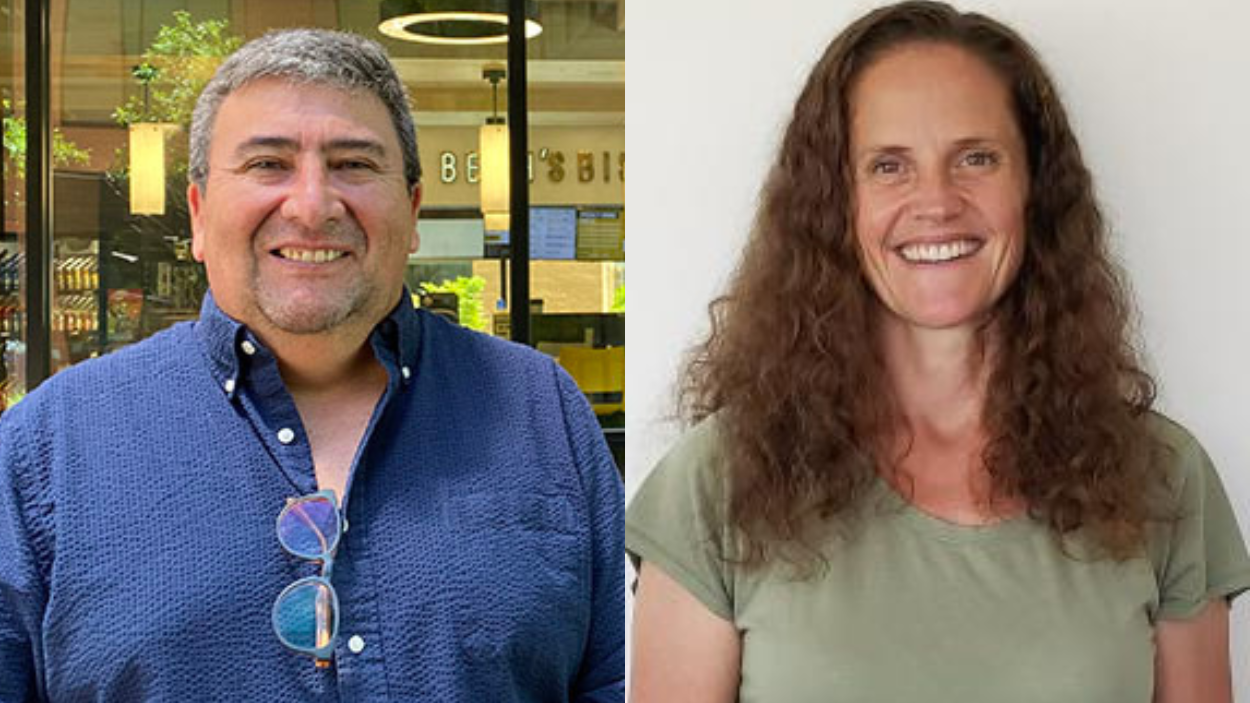Pregnant Mothers Needed for Research Study

Eduardo Ortiz and Nikki Rice
The ECHO (Environmental Influences on Child Health Outcomes) Program is searching for expecting mothers to participate in a longitudinal research study. Note: This national research study is different from IDRPP's Project ECHO, a learning and guided practice model that currently offers professional development to practitioners on seven topics.
The ECHO research study aims to collect observational data on participating children over twenty-one years so researchers across the country may understand how environmental factors impact child health and development. The ECHO Program is interested in increasing the number of participants from diverse racial and ethnic populations who have been historically underrepresented in research.
The study is strictly observational and will not request parents to change anything about their parenting techniques or lifestyle. Nikki Rice, a project study coordinator, explained that annual surveys will be sent out for the parents to fill out with information about their child’s health and development. General physical measures tests (measuring things such as height and weight) will provide a long-range understanding of their general health and progression. Depending on the year, samples will be collected from the child, incuding hair, blood, urine, and teeth when they fall out. They will also be given tests that determine how their children think, breathe, move and behave.
The study is strictly observational and will not request parents to change anything in their parenting techniques. Rice said annual surveys will be sent out for the parents to fill out with information such as child's nutrition intake, school progress, and family income. Then the samples will be collected from the child. Lastly, they will be given a cognitive test as well as a general health test (measuring things such as height and weight) to get a long-range understanding of their general health and progression.
When all the data is collected, it will be filed into an online data bank where researchers outside of ECHO can use it. Rice explained, "Researchers anywhere in the country can use this data to answer questions that they might have that's pertinent to their research."
The ECHO program has received a lot of participation in previous studies. "You'd be surprised how many parents are just happy to be involved in research and be able to contribute to science and to the future health of children," Rice said. "A lot of parents focus on the fact that but they also get monetary compensation. So, for every component we have, we give compensation ... There is no cost to our families to be part of the study, except for their time and effort."
Eduardo Ortiz, the site lead and co-investigator of the project, has been working with at the IDRPP for over twenty years. He is very excited to recruit a new group of young children into the study. "As a researcher," Ortiz said, "I believe in data, and the data that we collect in ECHO will help us learn how we can improve the lives of children for years to come. This data is going to help us know how we can improve the health of our nation."
ECHO is currently recruiting English- and Spanish-speaking pregnant individuals near the University of Utah or Utah State University who are less than 20 weeks gestation. Find out if you are eligible thorugh this online survey. If you are interested in learning more about the project, please visit ECHO's website or contact Nikki Rice or Eduardo Ortiz. Previous studies' findings and publications can also be found on ECHO's website.

